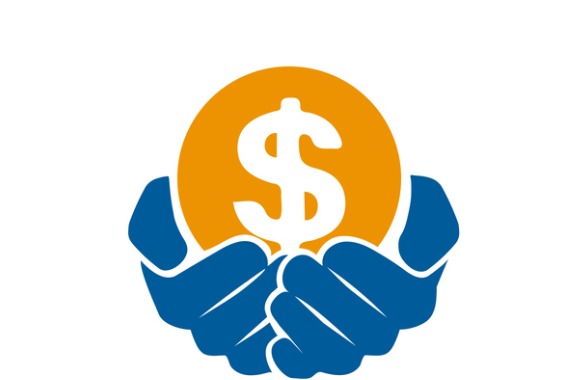As nonprofit organizations strive to make the world a better place, they often run into the same problems other nonprofits face in their operations. One of those challenges nonprofits face is managing their vast and complex data.
Nonprofit organizations collect and analyze data from various sources, including donations, grants, volunteers, and programs. However, when this data is scattered across multiple systems and platforms, it can take time to manage, analyze, and use effectively.
This disconnected info is where data centralization comes in. By centralizing their data, nonprofits can streamline operations, reduce errors, improve decision-making, and gain greater visibility into their financials and operations.
Centralizing your nonprofit’s data gives you all the advantages of working smarter, not harder. Let’s take a look at how.
Benefits of Centralized Data Management for Nonprofit Organizations
By centralizing your nonprofit’s data, you get various benefits that help you make the most of your technology resources.
Improved efficiency and productivity: Centralized data is easier to access and manage, saving time and reducing errors. To generate a report or analyze a specific metric, you can quickly find the relevant data in one location instead of searching through multiple systems.
What can you do with that extra time? Easy! Focus on more critical tasks like fundraising, program development, or community outreach.
Reduced errors and redundancies: When data is scattered across multiple systems, it can be difficult to ensure its accuracy and consistency. Data centralization helps reduce errors and redundancies and improve the quality and reliability of your data. This is especially important regarding financial data, as errors can lead to significant consequences, such as audits or lost funding.
Better decision-making: Gain greater visibility into your nonprofit’s financials and operations and make more informed decisions about budgeting, program development, and fundraising. The ability to quickly see which programs generate the most revenue or donors contribute the most can help you prioritize your efforts and allocate resources more effectively.
Greater visibility and transparency: Achieve greater clarity in your operations with all of your data in one place. Share information with stakeholders, such as donors, board members, or regulators, to build trust and credibility within your community and ensure your nonprofit meets its goals and objectives.
With all these benefits that help you work smarter and more efficiently, everyone is onboard, right?
It’s crucial to understand the challenges of data management in nonprofit organizations, especially with limited IT resources and expertise.
Challenges of Managing Data in Nonprofit Organizations
Nonprofit organizations face unique challenges when it comes to managing their data. Here are some of the top challenges:
Multiple data sources and systems: Due to collecting data from multiple sources, such as donors, volunteers, grants, and programs, business data can be scattered across various systems and platforms, making it difficult to manage and analyze effectively.
Limited IT resources and expertise: Nonprofits may lack dedicated IT staff or the resources to invest in complex data management systems, making it challenging to centralize and manage data effectively.
Data security concerns: Dealing with sensitive information, such as donor data and financial records, requires nonprofits to protect this data from unauthorized access or theft.
To overcome these challenges, nonprofit organizations need affordable, user-friendly, and secure solutions.
How Can Nonprofits Centralize Their Data?
To centralize your nonprofit’s data, you must evaluate available options and choose the right software for your organization. Here are some of the key solutions for consolidating nonprofit data:
Cloud-based software: Cloud-based software can provide a cost-effective and scalable solution for centralizing your nonprofit’s data. That way, your data is stored in a secure data center and can be accessed from any device with an internet connection. This can be especially beneficial for nonprofits with limited IT resources or those that need to collaborate remotely.
Nonprofit-specific software: Nonprofit-specific software can provide tailored solutions for managing nonprofit data, such as donor management, grant management, and program management. Nonprofit-specific software can also offer features such as fundraising tools, reporting, and analytics, to help nonprofits make informed decisions about their operations.
Enterprise resource planning (ERP) software: ERP software can provide comprehensive solutions for centralizing nonprofit data, including financial management, human resources, and supply chain management.
ERP software can also provide budgeting, forecasting, and project management features to help nonprofits manage their operations more efficiently.
Dive Deeper: Unlocking the Power of AI: How Non-Profits Lead in a Digital Era
When choosing the right ERP software for your nonprofit, it is essential to consider your organization’s needs, budget, and IT resources. You should also evaluate the software’s features, user-friendliness, and security.
Sage Intacct Nonprofit ERP: The Solution for Nonprofit Data Centralization
Sage Intacct Nonprofit ERP is a powerful solution for nonprofit data centralization because it offers comprehensive tools for managing nonprofit financials, grants, projects, and donors in one centralized system.
Notable features and benefits of Sage Intacct Nonprofit ERP:
Financial management: Sage Intacct Nonprofit ERP provides robust financial management tools, including fund accounting, budgeting, and revenue recognition. It also provides real-time dashboards and reporting, giving nonprofits greater visibility into their financials and operations.
Grant management: Sage Intacct Nonprofit ERP provides tools for managing grants from pre-award to post-award, including grant proposal tracking, budgeting, and compliance. It also provides real-time reporting and analytics, enabling nonprofits to track grant performance and outcomes.
Project management: Sage Intacct Nonprofit ERP provides tools for managing nonprofit projects, including project budgeting, time tracking, and resource allocation. It also provides real-time reporting and analytics, enabling nonprofits to track project progress and outcomes.
Donor management: Sage Intacct Nonprofit ERP provides tools for managing nonprofit donors, including donor segmentation, donation tracking, and reporting. It also provides tools for managing fundraising campaigns, events, and appeals.
Sage Intacct Nonprofit ERP is also designed to be user-friendly and affordable for nonprofits, with flexible pricing and cloud-based deployment options while providing robust security and compliance features, including data encryption, role-based access control, and audit trails.
Making the Nonprofit Life Easier For All
Centralizing your nonprofit’s data can provide numerous benefits, including improved efficiency, reduced errors, better decision-making, and greater visibility, but with limited IT resources and multiple systems, it can be a challenge.
Sage Intacct Nonprofit ERP provides a powerful solution for nonprofit data centralization, with comprehensive tools for managing financials, grants, projects, and donors in one centralized system.
To learn more about how Sage Intacct Nonprofit ERP can help your nonprofit work smarter, not harder, contact us today for a free demo.



